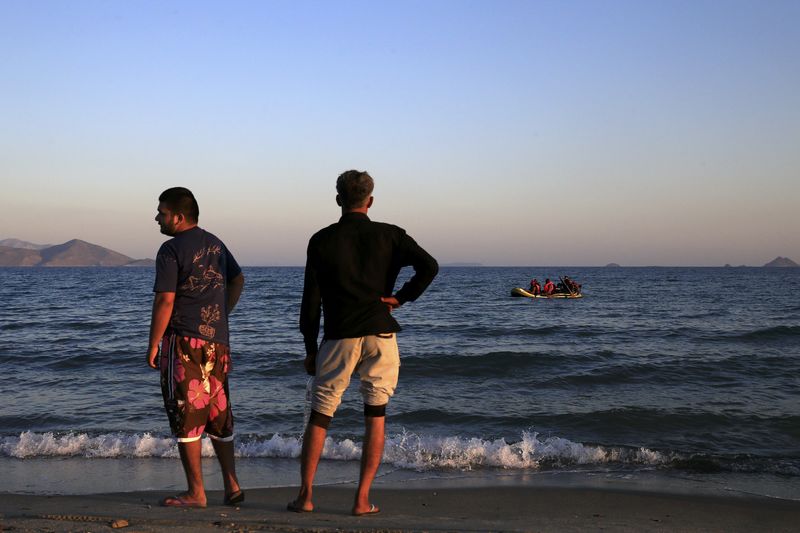ATHENS (Reuters) - A passenger ship carrying Syrian migrants set sail from the Greek island of Kos on Wednesday, heading for the mainland as authorities struggle to cope with a wave of arrivals.
The Greek coast guard's office said the ship, which has acted as a floating accommodation and registration center since Sunday, was heading for the northern port of Thessaloniki, Greece's second biggest city.
On Tuesday, Athens appealed to its European Union partners to come up with a comprehensive strategy to deal with the migrant crisis after 21,000 people landed on Greek shores last week alone.
Many of the arrivals have escaped the Syrian civil war, making their way through Turkey before crossing the narrow stretch of water to Kos and other Greek islands in inflatable dinghies and small boats to seek refuge in the EU.
With conditions on Kos becoming increasingly chaotic, the Greek government chartered the car ferry Eleftherios Venizelos last week to accommodate up to 2,500 Syrians and ease the pressure on the island. Thousands of other migrants from Asia, Africa and elsewhere in the Middle East are sleeping in abandoned buildings or in the open.
Many migrants have already made it to Thessaloniki, often crossing by foot into neighboring Macedonia. From there, they try to head for northern Europe in the hope of finding more help and jobs that are not available in Greece, which is gripped by economic crisis.
Last week's arrivals in Greece were equal to almost half the number for all of 2014 and bring the total for this year to 160,000. This has strained an ill-prepared reception system that relies heavily on volunteers. The Syrians got priority in boarding the ship as they are regarded as refugees due to their country's civil war.
Arrivals from other countries such as Iran, Afghanistan and Pakistan, regarded as economic migrants, are camping out in filthy conditions, leading to sporadic clashes and brawls.

A spokesman for the United Nations refugee agency UNHCR in Geneva said Greece needed to show "much more leadership" in dealing with the crisis.
(reporting by Alkis Konstantinidis; additional reporting by Michele Kambas; Writing by David Stamp)